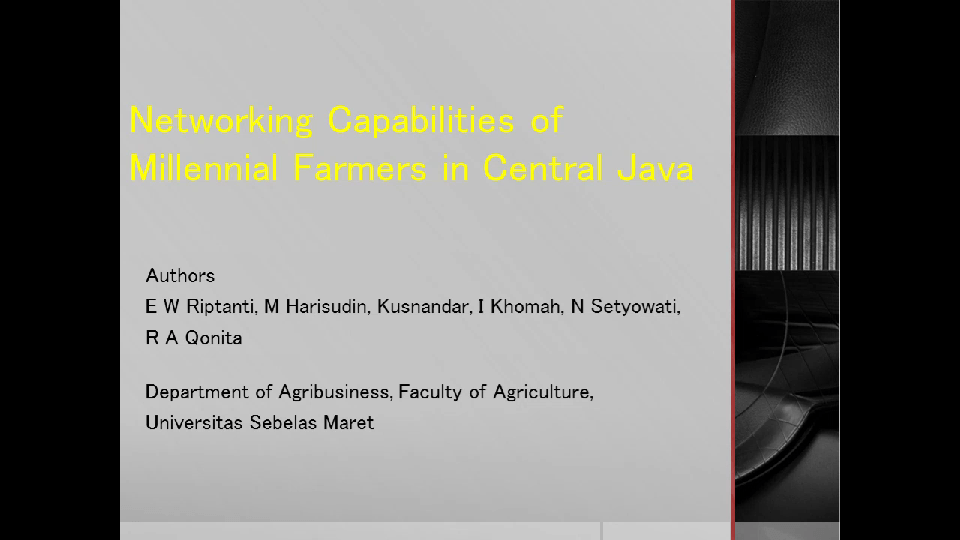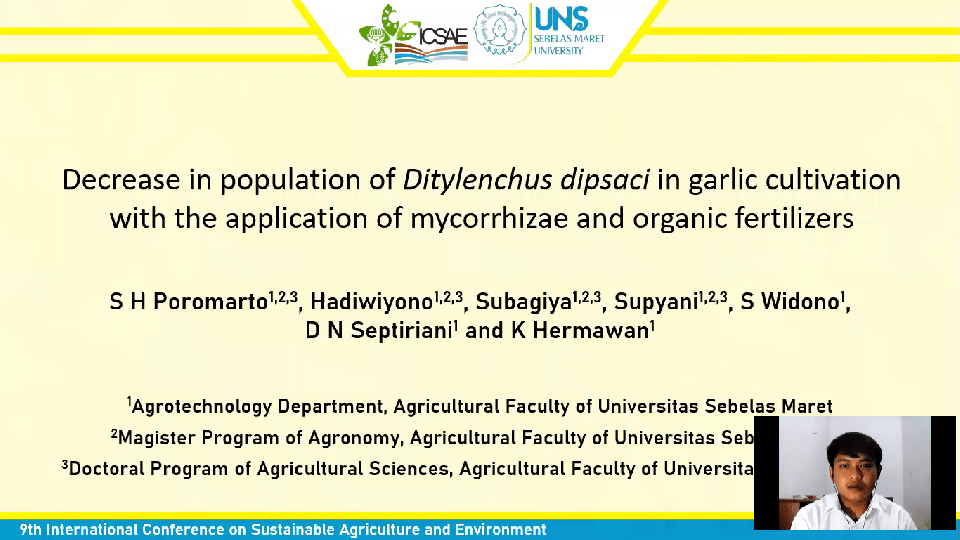Home » Room Video 6 » ID83 Utilization of tannin from chestnut
Paper ID: 83
Utilization of tannin from chestnut as a protective agent in slow release urea: An in vitro rumen fermentation study
Feggie Feggie, Sandi Nayohan, Komang G. Wiryawan, and Anuraga Jayanegara*
Department of Nutrition and Feed Technology, Faculty of Animal Science, IPB University, Bogor 16680, Indonesia
* Email: anuraga.jayanegara@gmail.com
Urea has been utilized as a non-protein nitrogen supplement for ruminants due to its affordable price, abundantly available, easy to use, and positively affect microbial protein synthesis in the rumen. However, urea have a weakness since it is rapidly converted into ammonia in the rumen and may lead to nitrogen loss and even ammonia toxicity. Development of a slow release urea (SRU) is therefore important in order to overcome such potential negative impacts. This experiment was conducted to evaluate the effects of SRU, made by complexing the urea with tannin from chestnut, on in vitro rumen fermentation parameters. The treatments were the addition of different forms and levels of urea into a basal diet, i.e., 1% conventional urea (T0), 1% SRU (T1), 2% SRU (T2), and 3% SRU (T3). Data were analyzed by using analysis of variance and continued with a post-hoc test namely the Tukey’s test. Results revealed that the SRU treatments (T1-T3) reduced (P<0.05) ruminal ammonia concentration at various time point intervals than that of the conventional urea (T0). However, the SRU did not alter microbial protein synthesis and nutrient digestibility. In conclusion, SRU made from tannin is an effective supplement for enhancing nitrogen utilization in the rumen.


